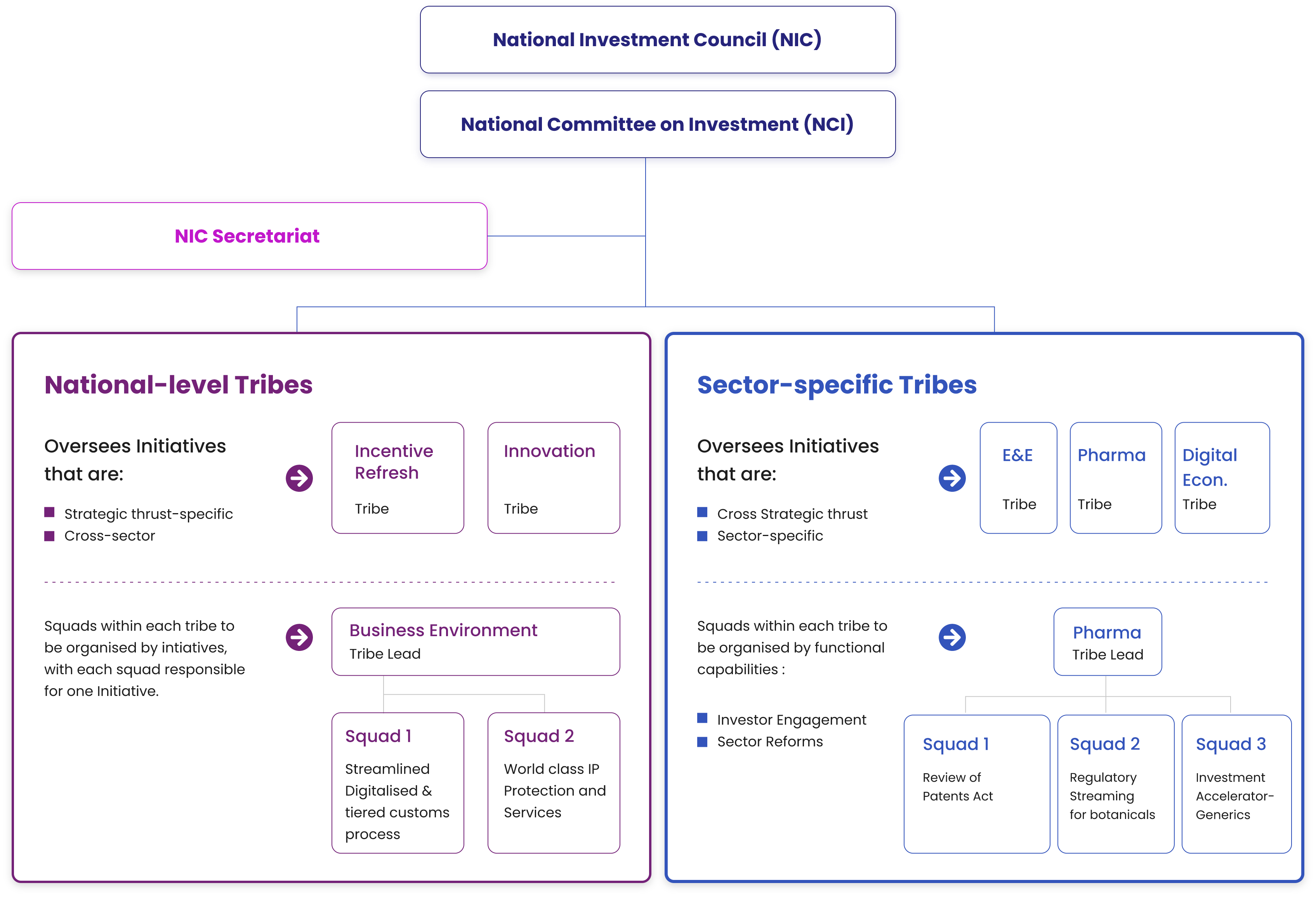A robust governance model will be critical to address key challenges typically seen in large-scale transformation efforts, providing a framework to ensure effective and timely delivery of reforms.
Given that a wide range of government entities are either directly or indirectly involved in investment-related matters, it is imperative that an effective governance model establishes clear roles for stakeholders
A transparent governance model will be established, with clear delineation of roles and duties, to ensure the successful implementation of the New Investment Policy. This framework will incorporate four key pillars of oversight-strategic oversight, advisory, coordination and monitoring, and implementation. These four key roles will be designed and applied across all elements of the governance structure.




(National & Sector-level)

National Investment Council Structure
Given the nature and scope of initiatives outlined in this report, two distinct types of Implementation Teams will be established—national-level and sector-specific teams. This dual-track approach will ensure adequate focus is provided to delivery of initiatives at all levels, and minimise the overlap across Implementation Teams.
Robust governance is critical to address the typical challenges and opportunities expected to emerge during national transformation efforts, and to ensure successful delivery of results. The governance model outlined in this section is designed to establish accountability, enable cohesive implementation, support better and quicker decision making, and enhance transparency of outcomes. All stakeholders across the public and private sector landscape must work together and collaborate effectively to demonstrate and deliver clear, transparent progress to drive Malaysia towards achieving its NIA ambitions.



